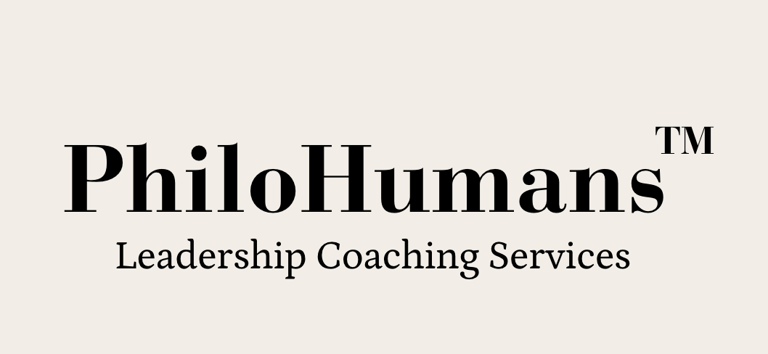The Power of Shared Humanity in Leadership: Embracing the PhiloHuman Mindset
Explore the power of Shared Humanity in Leadership through the PhiloHuman Mindset, focusing on inclusiveness, purpose-driven goals, and cultural sensitivity to foster impactful leadership.
LEADERSHIP RELATIONSHIPS
Dr. Rojin Karickal
10/9/20242 min read


In a world increasingly defined by digital interactions and decentralized work environments, the essence of leadership is evolving. At its core, effective leadership is about realizing potential, cultivating a nurturing environment, and striking a balance between individual aspirations and collective goals. The PhiloHuman mindset offers a profound framework for transforming leadership through an emphasis on shared humanity, where leaders are called to embrace the collective human experience while guiding their teams and organizations toward a common purpose.
The Foundation of Shared Humanity
Shared humanity within the PhiloHuman mindset is the understanding and acknowledgment that, despite our diverse cultures, backgrounds, and beliefs, we are all connected through our human experiences. This aspect of leadership calls for recognizing the inherent value of every individual and fostering an inclusive environment where differences are cherished as strengths. It involves creating a space where empathy is not just an inward virtue expressed in personal circles, but an outward force that fuels organizational culture and change.
Leadership Beyond Self: The Role of Shared Humanity
Authenticity and empathy, the first two pillars of the PhiloHuman mindset, are building blocks for nurturing self-awareness and interpersonal relationships. Shared humanity steps beyond these concepts by advocating for a leadership style that emphasizes collective welfare over individual gain. Leaders embracing shared humanity understand that their actions ripple beyond immediate surroundings, impacting society and the world at large.
Such leaders inspire through service, casting visions that resonate on a human level, and making decisions that bear the moral weight of their broader impact. The approach embodies an ethical stance where profitable outcomes and humanitarian goals are not seen as mutually exclusive but as complementary pursuits.
The Elements of Shared Humanity in Leadership
Inclusiveness and Collaboration: A leader dedicated to shared humanity actively creates an inclusive environment, giving a voice to diverse perspectives. They foster collaboration as a core principle, encouraging teams to work together, share knowledge, and innovate by learning from each other's strengths and experiences.
Purpose-Driven Goals: Shared humanity in leadership is deeply aligned with setting goals that transcend transactional business objectives. Purpose-driven leaders infuse their teams with meaning, situating shared values at the heart of their mission. Whether it’s through sustainable practices, community involvement, or ethical decision-making, leaders challenge their organizations to contribute positively to society.
Cultural Sensitivity and Global Awareness: Globalization has made cultural sensitivity a cornerstone of effective leadership. Shared humanity pushes leaders to not only be aware of but actively embrace cultural differences, recognizing the global connectivity of their actions. By understanding global issues and cultural nuances, leaders can navigate complexities and unite teams across geographical boundaries.
The Transformational Impact
Leaders who integrate shared humanity within their operational ethos are drivers of holistic transformation. They nurture environments where employees feel valued and connected not just to each other, but to the larger world. This fosters a sense of belonging and engagement, leading to increased innovation, productivity, and resilience.
Moreover, organizations led by principles of shared humanity are often seen as role models in their industries. They attract talent who are driven not just by career prospects but by the aspiration to be part of something greater—a community with the potential to enact meaningful change.
Conclusion
In adopting shared humanity as a central theme of leadership, the PhiloHuman mindset offers a blueprint for transcending traditional leadership forms. It beckons leaders to step into a role that not only steers the ship but uplifts the people on it. By embracing our collective human experience and advocating for a greater good, leaders can forge paths that are as mindful as they are progressive, paving the way for a future where leadership is defined not by power, but by the impact and value it brings to humanity.


